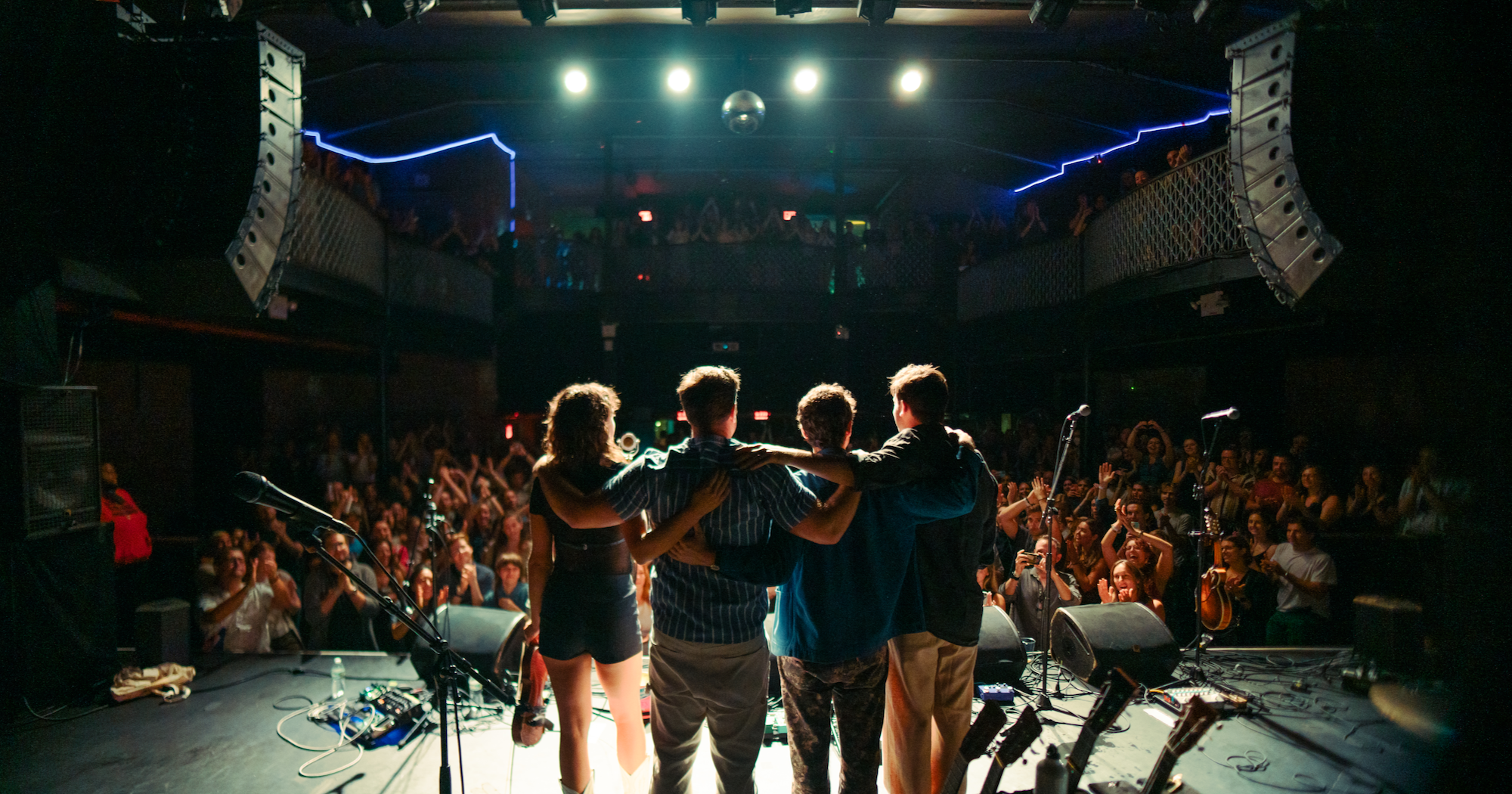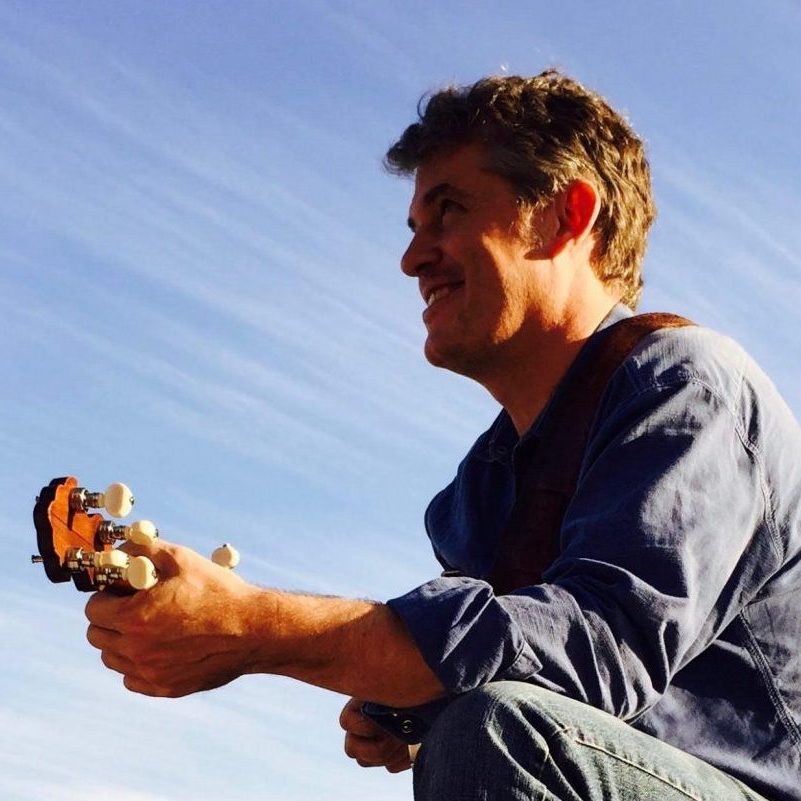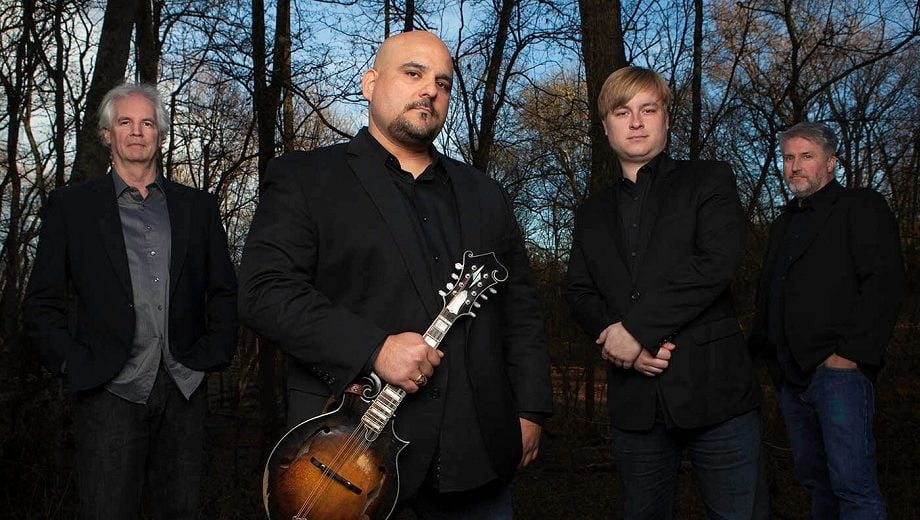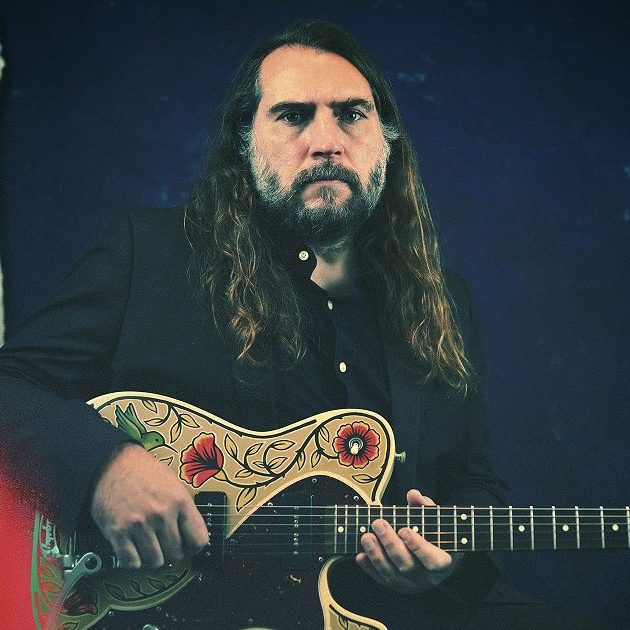The last time Mipso were our Artist of the Month it was 2023, in the run-up to their release of Book of Fools. At that time, I wrote our article unveiling the group as our artists-of-honor with the central conceit of that writing a straightforward but relatively groundbreaking plank in the band’s foundational mission as musicians:
“…[Mipso] aren’t defined by their ambitions; and their ambitions don’t seem to ever be conflated with conquering anything. Instead, this is a band building something.”
Over 13 years, six studio albums, hundreds of millions of streams, and more than 1200 shows, that fact remained true. No matter the shifting sands of their music making, industry successes, and the natural ebb and flow of more than a decade touring and creating together – even in moments of uncertainty, growing pains, and stress – it was always clear, at every juncture, that this band wasn’t just trying to climb industry and corporate ladders toward success. They were building something, not just building towards something.
A few months ago, the group of Wood Robinson, Libby Rodenbough, Jacob Sharp, and Joseph Terrell announced their Farewell For Now Tour and a deliberate and intentional stepping away from the band that was the gravitational center of their lives from their college days into their 30s. Fans and peers around the globe were devastated and saddened. But, with that stalwart keystone at the center of their artistry, it was immediately clear Mipso aren’t abandoning anything. Or walking away from something that will wither, wilt, or die away without them. The “something” they’ve been building has, gratefully, been built to last without themselves or their egos at its core. Their songs, their mission, and their impact are structurally sound, unwavering in the face of the purposeful uncertainty of the band’s next new era.
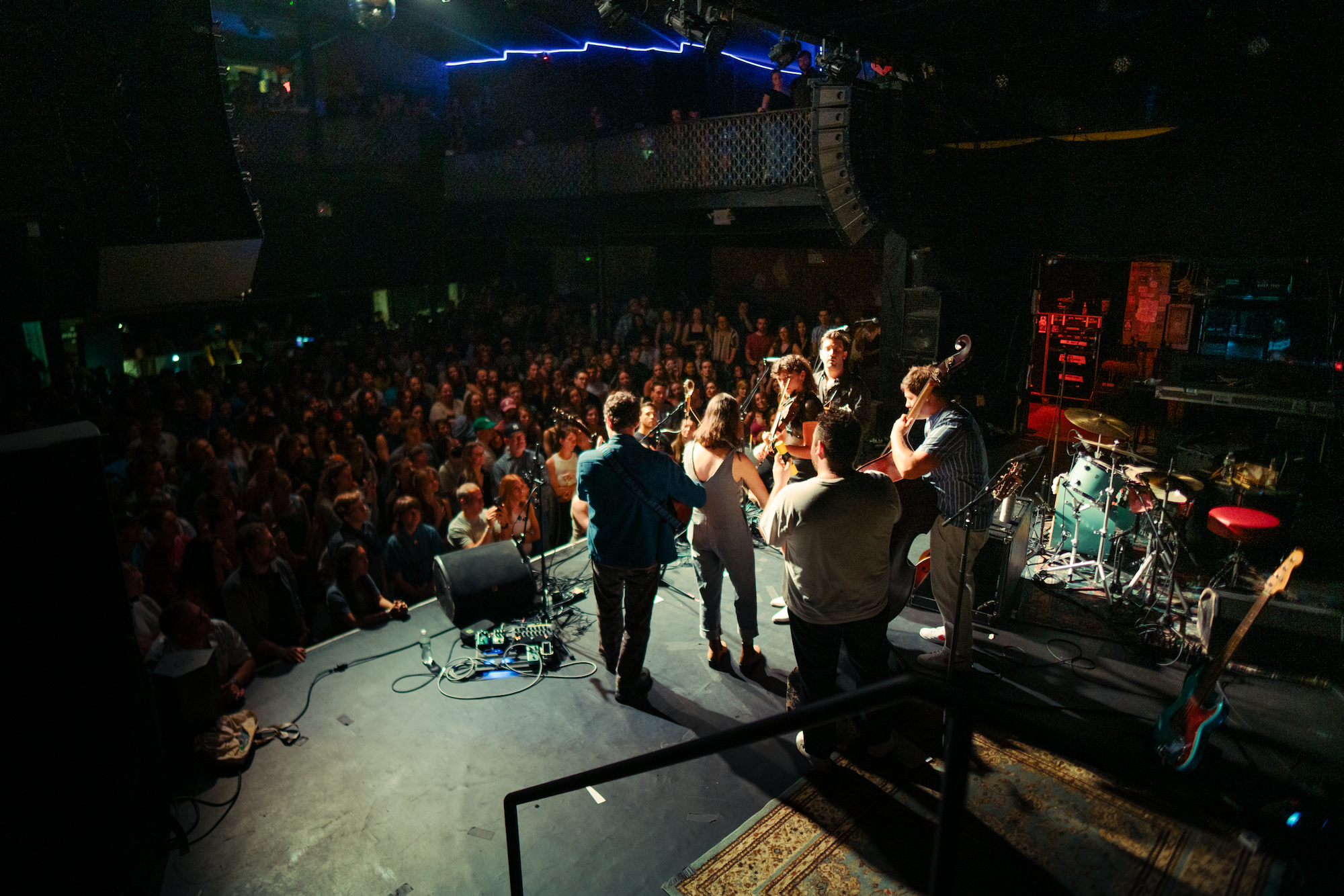
Mipso’s final studio recording, the gutting, emotional, and convicting “Singing Song” (released in August) wasn’t originally meant to be such a well-fitting final track from the group. But, whether coincidentally, fatefully, or aptly, it finds in its crosshairs the exact pathway through which Mipso’s legacy can and will live on with or without the band acting as their own life support system.
“Singing Song” imagines a not so far-fetched reality in which songbirds are going extinct in the accelerating climate crisis and humans are assigned birdsongs to help keep alive by singing, refusing to let their avian melodies die, go silent, or be forgotten. It becomes the role of the community itself to hold memories, together, and move into the future with our pasts to help guide and inform of what’s to come.
This is what Mipso have built for us. And they have built it for the eons. Their music will live on in each of us, as we carry their melodies – “Louise” and “Carolina Rolling By” and “People Change” and “Coming Down the Mountain” and so many more – with us into our collective uncertain future. Mipso were never building a mine or a factory or a quarry by which they could extract all the resources they could from us. No, they built us a home. Joist by joist, shingle by shingle. And now, though they may be moving out for a time, we’ve all been invited to maintain this idyllic Carolina mountain shack they’ve gifted to us.
A parting such as this begs the question, “Who will sing for Mipso?” but the answer is immediately obvious and indelible: All of us. Because this band, this impeccable string folk foursome, has never been solely about the people who make it up. It’s always been a community far greater than the simple sum of its parts or only made up of the folks on stage.
Midway through their Farewell For Now Tour, BGS connected with Mipso via Zoom for an in-depth round-table discussion about their decisions to put the band “on the shelf” for a little while. Our conversation was full of intention, nostalgia, and a remarkable variety of ways to look into the future for redemption and renewal.
I wanted to start by having y’all talk a little bit about how you feel about how your mission as a group – prioritizing art and community and building something instead of going somewhere – has informed this decision to pause the band. Whether it’s been stated overtly or has been the undercurrent behind what you’ve all done, that mission is clearly informing this decision as well.
I think some people see this farewell as a switch being turned off and a new thing happening after an old thing goes, but I don’t see it that way at all. I see this as an extension of what you have always been doing, being intentional and deliberate with the group and its purposes. So I wonder what your reactions might be to that, or if you have thoughts about that as we’re talking about this next era that you’re entering together?
Libby Rodenbough: Yeah, I agree with that. I feel like what we’re trying to do here is protect intentionality rather than letting this slow creep of unintentionality take over what we’re doing. It almost feels like that’s the natural inertia of the world, to let anxiety run things for you.
I see this as trying to protect the preciousness of how we’ve done it for so long from an anxious orientation, which I really feel is just like the way the world wants you to think about everything.
Joseph Terrell: That was a beautiful way to put it, Justin. Thank you. And also thanks for being one of our friends and pals and loved ones in this corner of the world for so long. I appreciate the way you’ve just explained us to us. That’s actually very helpful.
I think there are all kinds of “supposed tos” that we allow to rule our lives and tell us what to do next. And this decision, I think, for us to put the band on the shelf for a while is very much a deliberate decision that comes from years of conversation. It’s an attempt to do what we really want to do, on purpose, based on our love for each other and what we’ve built together – as opposed to what’s expected of us or what we are “supposed to do.”
Jacob Sharp: I think there were moments where we did make decisions based on what we thought we should do. We had the benefit of being able to trust each other when we heard from one or many people that it didn’t feel right. Like, we flirted with Nashville, we flirted with content creation and all these things that people are telling us you need to lean into in the industry, you need to lean into online.
There’s an element of this decision right now, of us having realized that something that used to feel really good and obvious was less so in the current version of it. Looking around, I’ve said in different ways that it’s like it’s a blessing to feel full and to be content with that.
All of us are very full on what we’ve been able to do and how we’ve been able to do it. And as we, over the last year and a half, talked about this in different ways and tried different things, it was easy to imagine how it would be irreversibly not good if we kept going down the path that didn’t involve us – in some of this vision that you’re recognizing that has been in different ways at our core throughout.
Wood Robinson: I think that, as we’ve let this decision percolate over [time], we’ve thought through this idea of putting it on the shelf for a little while – probably the first time we genuinely talked about it was on our Europe tour from hell, and there have been many different feelings at many different times. …
You might as well have a really fulfilling and intentional process of arriving at a conclusion that you actually feel good about. And the beautiful thing about music is that it isn’t as if we’re going away. Everyone has links to our entire 15 years of music making on their phones at any time.
@mipsomusic everything about it takes a little luck #farewellfornow #folkmusic #acoustic ♬ original sound – mipso
When you remove the impetus of an end goal, it immediately becomes so clear that none of this is a zero-sum game, right? None of this is black and white or binary – “We’re done now. We can’t ever do that again.” … These songs, this catalog, this thing that you’ve created together, it has a life that isn’t dependent on all of you continuing to do this the same way that you’ve always done it. And that longevity, that we’re foregrounding right now, I think that is gonna be built on that same foundation of intention.
WR: I’m currently working in conservation and over this past weekend I drove down from Salt Lake City to Zion [National Park], around it, and then back, which was a lot of driving. That’s neither here nor there. I’m very used to that. But I re-listened to the most recent season of Scene On Radio about capitalism. My favorite episode of that is really talking about that [Donella] Meadows book from the ‘70s, The Limits to Growth. It was a very poignant moment of thinking [about how] the growth virus infects everything.
If the only way of thinking of a future for any entity is for it to grow indefinitely, even if you don’t know what it’s supposed to grow into, that’s cancer. If the primary goal of a group is to make music together, is to make beautiful art together, putting it away for a while does nothing to impede that. Maybe the growth mindset really infects that. I was chewing on that when I finished the series and it weighed heavy, but it also reinforced my feeling really good about this decision.
LR: I don’t know if it’s coincidental, Wood, or if we talked about it, but I just finished that season of Scene On Radio as well and I loved that episode. It makes you wonder then, what’s the alternative to growth? To infinite growth.
I feel like the world shows us that it’s death and rebirth. Like death is the natural way for things to go. I think we have a culture that – in a way [is] not unrelated to this cancerous growth mindset – is really afraid of death. Really afraid of talking about death, thinking about death, having rituals about death. Not to be like dramatic or morbid about what we’re doing, but death happens in the natural world every fall.
It’s not necessarily tragic and it’s not world-ending. Conversely, it’s essential for life. I think that saying goodbye to something – I said this at one of our shows in this first little run – but saying goodbye to something is a really good practice, because it’s how I want to go through my life, generally. It’s how I want to relate to life itself, too. That death is part of what makes things beautiful and meaningful.
I didn’t even need to say what I was gonna say, ’cause you just said it! [Laughs] How helpful it is to think about infinite growth as being unsustainable through the lens of nature and ecosystems – what an excellent model. Looking out the windows, stepping outside, literally grounding ourselves in our natural surroundings shows us how stasis, maintenance, renewal, all of those things are equally productive as working 40, 70, 80 hours a week and driving thousands of miles. Just “being” is a lesson that we can all learn.
This connection, the death and renewal of nature and the seasons, it’s making me think of “Singing Song” and it’s making me think of the contours of “Singing Song” being about nature, about environment, and about the Rachel Carson of it all. But also how the song applies to where y’all are at with Mipso at this stage.
Talking about the infinite growth mindset and how it’s pretty well antithetical to how the earth actually works and how we all work as biological beings, the way that y’all draw on nature and the environment to convey the message of “Singing Song” feels so apropos. Can you talk about the song a little bit and can you talk about how, for y’all, if it bumps into or up against any of these things we’re already talking about here?
WR: Obviously, “Singing Song” is about a not-quite-hypothetical world in which all of the birds die and everyone is tasked with singing the song of a bird so that their memory lives on as a ghost among us forever and ever. It wasn’t intended to be quite so on the nose to be the last song that we released before we went away and people were tasked with singing our memories forever and ever. But it really worked out to be a little on the nose there.
I think that there is a real beauty in memory and in the fact that every person is just a little spirit that enters the world and then leaves. Then there are little wisps of that spirit in memories, in people that continued after them until those people’s memories go away. That impermanence becomes permanent in a very poetic way. We haven’t really talked so much outwardly about how that song really worked out well for this moment, but I think that in the context of what we’re talking about now, the conclusion of something, gives it a lot more meaning.
Sometimes I think about how I really love the Marvel universe because it never ends. [Laughs] That feels like a drug to me. I don’t like that I like that. But the world just keeps on building and building and it feels like there’s no intention, because it can’t be let to rest. The reason that it can’t be let to rest is the very growth that we’re talking about.
And sometimes I think about bands who keep on being on tour for 60 years playing the same songs and that just can’t not be sad to me. Always wanting to relive the moments of the past that somehow, like a little bit of morphine, give us meaning in a moment.
JT: I think, at our best, we were doing something we’ve done together that is beautiful in its uniqueness, four people making something that we couldn’t have made on our own together. I’m really proud of us that we’ve never phoned-in the live shows. While it’s easy to be cynical about the music industry part of stuff nowadays, I don’t think we’ve ever been cynical about music making. I really don’t think it’s a stretch to say that concerts, at their best – not just ours – but the spaces that we can create with other people live together in a room, human bodies sweating together. It really is a sacred thing.
Partly this is us being able to say, “Hey, this has been so special and I love you guys and I love what we’ve built. And we wanna do other stuff for a while now.” That attitude has allowed this tour, I think, to be a place where we can really be appreciative and grateful.
We did a few acoustic shows on the last run, just the four of us on stage, and it was really fun. We haven’t done that in a while. We’re standing close together and we’re listening to each other. I like playing with all kinds of people and I love [that] every time I play with new musicians, I’ll learn something. But also, with these four people together, I have this kind of home feeling of just rightness and intuition that I really love. I’m glad we’re able to celebrate that.
“Singing Song” also makes me think of “Who Will Sing For Me?” and the idea of, “Who will sing for Mipso?” Who will carry on the songs of Mipso now? It’s such an easy question to answer, because so many of these songs are so important to so many people.
This tour is a bit of a family reunion, you guys have had some really great special guests, you’ve had and will have some really great openers. You talked a little bit about that feeling of home, never wanting to phone it in for the live shows, and doing the acoustic sets – how has it felt on the Farewell For Now Tour so far? How are audience reactions and what are the takeaways for y’all as you are going through this tour?
LR: It makes me think about how I feel ambivalent about the idea of having a wedding, but if I was gonna have one – I’m single by the way [Laughs] – but if I was gonna have one, I think a lot of the motivation would be to get people together. So, in some ways, I see this tour as just an occasion. It’s an occasion for getting together, an occasion for thinking about the past together. And it’s been an occasion for me to look through all my old photos and try to make sense of my many overlapping memories of tours, of the same cities in geographic regions, and certainly an occasion to get our friends together and play songs.
When you’re doing tours interminably, it doesn’t feel like you can really make an ask of people as easily. But if you’re like, “Hey, this is maybe the last time we’re ever gonna play,” it’s kind of a trump card on people’s schedules. [Laughs] In the same way as getting married, we at least maintain the fiction that it only happens once in every life.
JS: One funny thing, Justin, was we have known this was coming for a long time and our fans have, too. We announced it a number of months ago, but night one of each of these shows is really specific. Like, to what city and what venue we’re playing. There’s a reason.
Night one [of the tour] was in Seattle, a place that we all really love and have had great times at Tractor Tavern, one of our favorite venues. We came out loose, joking, irreverent. And our fans were so sad. Not all of them, but they were having this moment of sadness. It was one funny thing that we have talked about in the intervening days, is we need to try and rectify the difference between where our emotional space is and where certain crowds are, because there is an element of this where it’s a gift to ourselves and also we hope it’s a gift for our fans.
‘Cause we know what it feels like or what it would feel like to know you weren’t gonna see your potentially favorite band again. If we are that for anybody, we want them to have this moment to commune one more time with us and the other people in their community that connect with the music and with the songs themselves.
It’s been funny to feel this emotional responsibility of occupying both the reality of where we’re at with it emotionally and also where we might imagine other people are – both in the music and the presence and how we talk about it. But it is that nature of it being, to Joseph’s point, the sacred space that we’ve gotten to occupy together a lot more than we could have ever imagined. It is like this final gift that we’re giving to ourselves of getting to do it within a very definite and intentional manner for this final month.
Maybe I’m putting carts before horses – never done that before in my life – but as you guys are looking to the future, what is Mipso potentially gonna look like over the next 13 years? Is it maybe going to be like Nickel Creek or Bonny Light Horseman or boygenius? We get a record cycle maybe once every few years, a sold-out tour.
As you are looking to the future, do you have any sort of sense of what the models are that you’re looking at or what sort of rhythm you might picture as a best case scenario for how Mipso might be a part of your individual constellations of creativity as you move forward? Have you had any discussions about that?
JS: Yeah, we don’t know. I think the point of taking a break is to be able to see that question clearly, because when you’re so in-the-rhythm as we were, it was a given that there was always another tour and it was a given that you prioritize Mipso creatively, timewise. That was the spoken and unspoken contract for the majority of our adult lives.
I think of it now as like Mipso became this drug, like our phones do. I want to be rewired from that, I want to be away from it long enough that I can know why I’m picking up the phone, why I’m picking up the Mipso, why I’m thinking about these songs. And for that answer and the meaning behind it to be the “why” of if we would ever do it again.
But of course, it’s funny, as soon as you announce a farewell tour promoters are like, “Great, can we add something next weekend? What about this festival next year? Here’s a reunion tour.” We think we need a pretty long break to know if and why we would do it again.
JT: I’m proud of us for not having figured that out yet, because it wouldn’t be a true stepping away if we had that plan in place.
The one idea I do [love] is that if we get The Onlies and like Palmyra and a couple of other groups that, on a rotating basis over the next 10 years, we can always have an active Mipso going made up of some of them and they could just kinda keep it going on the road without us.
WR: Yeah, I feel like if we had an answer to that [question] it would be destroying the point of the tour itself, at least for my own part. I think the point is to be open to it, but not planning anything. I don’t think that any of us are absolutely adamant that we never play music together as the four of us in a public setting again. To say that we’re putting it away, but we’re actually gonna start a festival next summer, would feel disingenuous to the people that are having strong emotions about it right now.
LR: I would say honest openness – an honest relationship with the lack of control that we have over the future – that’s becoming central to my life. Philosophy has become central over the last few years. It’s not only that I like being open, I do like the feeling of it. I like relinquishing control, but I also believe that it is true. And I also believe that a great deal of unhappiness comes from people trying to exert control over things they have no control over. They wanna control outcomes. That’s not possible. I don’t think that’s a human ability. So I think we’re really trying to love our humanness and not try to impose superpowers that we don’t have.
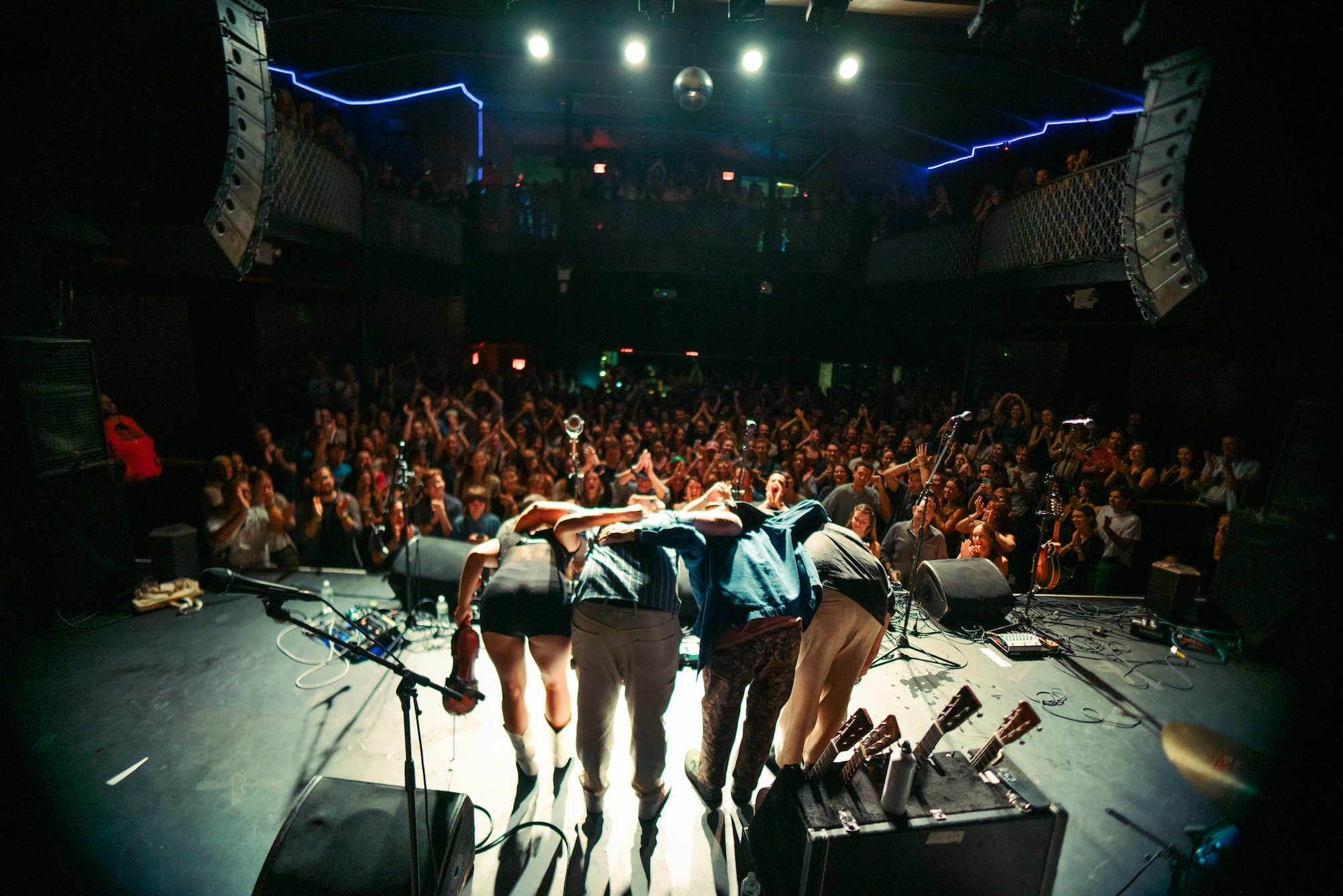
I know all of you have been working on other projects, other music – other projects in your lives that aren’t music as well. As we’re thinking about what’s next, as we put Mipso away for a little while, what’s filling you up? What’s exciting you? When you wake up in the morning, what is the thing that you’re ready to pour yourself into, bring to the world, and have that energy reflected back at you – in the same way as when you were getting Mipso up and running and started?
LR: I think, when I wake up here at Rare Bird [Farm], where I have a cabin where I live on my own, I usually don’t have to do anything first thing in the morning. I just start strumming the guitar and singing lines. It just feels like there will never be an end to the pleasure of doing that.
And I think I might even love it more now that I’m not thinking about an album cycle at all. It’s very motivating to me to just think all I’m doing, like the whole cycle, is contained in this moment. Something filtering through me and I sing it and it goes out into the ether.
JT: [To Jacob and Wood] Come on, you guys have really obvious answers to this.
JS: Okay, Wood and I both have wives that are pregnant, Justin!
Oh my god, congratulations! We’re gonna get Mipso second gen.
JS: Thank you!
Yeah, what’s next? My year has been so defined by change – unexpected, forced, and then chosen – that I’m excited for stability and for building a home in my former home, North Carolina, again, but in a very different way. And for the first time ever to not be looking at multiple years of calendars filled with tours and the ideas of tours.
I’m welcoming all the insecurities that have already started to creep up because of that. And I’m looking forward to finding answers about how I’m different than maybe I thought I was in the absence of this ecosystem, this rhythm of life, and with the baby in tow and how that changes the type of music I wanna make. And with whom.
I imagine letting the moss grow over the rolling stone that is not rolling anymore. Like what a novel feeling. We’ll watch it grow.
LR: That sounds so soft.
Wait, what is my identity if I’m not traveling constantly? If I don’t live in airports and hotels? Will people care about me? Will I be remembered? And then, you see the little inchworm on the moss and you’re like, “Oh, that’s all that matters anyway.”
JS: Yeah, you don’t have to answer those questions when you’re always filling the space with something else. I’m eager for some answers in that space.
JT: I was just outside while you’re asking that question – I’ve never had a dog before. I’ve never lived with an animal that I took care of. I love her so much. My other three bandmates have all done that, been through that phase a little bit more than I have. But I just moved back to North Carolina, too, and I’m feeling a little bit of that homey warmth. I’m so excited to plant some persimmon trees and to finish building this house that I’ve been working on for a few years.
That really does get me so excited to wake up and work on that. That’s the place that I can make music and have people over and really feel at home. It’s a version of that homey life that we haven’t really had as much of an opportunity to do for whatever, 12 years.
WR: I’m in a similar space to Jacob with there being a crazy amount of changes. But one thing that I have really come to terms with, that I recognize about myself, is that I really like being exhausted at the end of the day from a lot of work. From a lot of either physical or emotional work that feels like I made not forward motion in the sense of going for growth like I said, but forward motion.
So in conservation [work] I feel very fulfilled, because there is a tangible aspect of protection and feeling like I’m fighting a deliberate and pronounced fight for the future of that. Hopefully my kid inherits that. I always knew that I liked being tired at the end of the day, but I’m really excited to recognize a sort of routine that is within a smaller world than Mipso inhabited, but with a real, pronounced, and just fight that I’m fighting within it.
I feel a lot of gratitude right now for getting to be a small, small star in the constellation of Mipso in so many different ways over the years. And honestly, it will always be one of the things I’m most proud of to be misattributed as a Mipso member in 2017 by the Raleigh News & Observer. Huge moment for us all. [Laughs] That’s going on my bio for the rest of my life!
JS: Justin, I would say likewise to you. Now that we’re actively in the present nostalgia of saying goodbye to different cities and songs and motions together, the thing that’s hardest for me to imagine fully saying goodbye to is the built-in excuse of seeing this wide community that’s spread across the world. That we’ve built together with frequency and getting catch-ups on your life and hearing reflections on how you understand things that have happened to us that you’ve heard about or seen in the music or the shows.
That’s something I value so much and you’ve been a treasured part of that, so thank you. I really appreciate that.
JT: Totally. Thank you, Justin. One of our most trusted narrators over the last many years. Thank you for playing that role for others.
Photo Credit: Photos courtesy of Mipso, shot by Elliot Crotteau.
